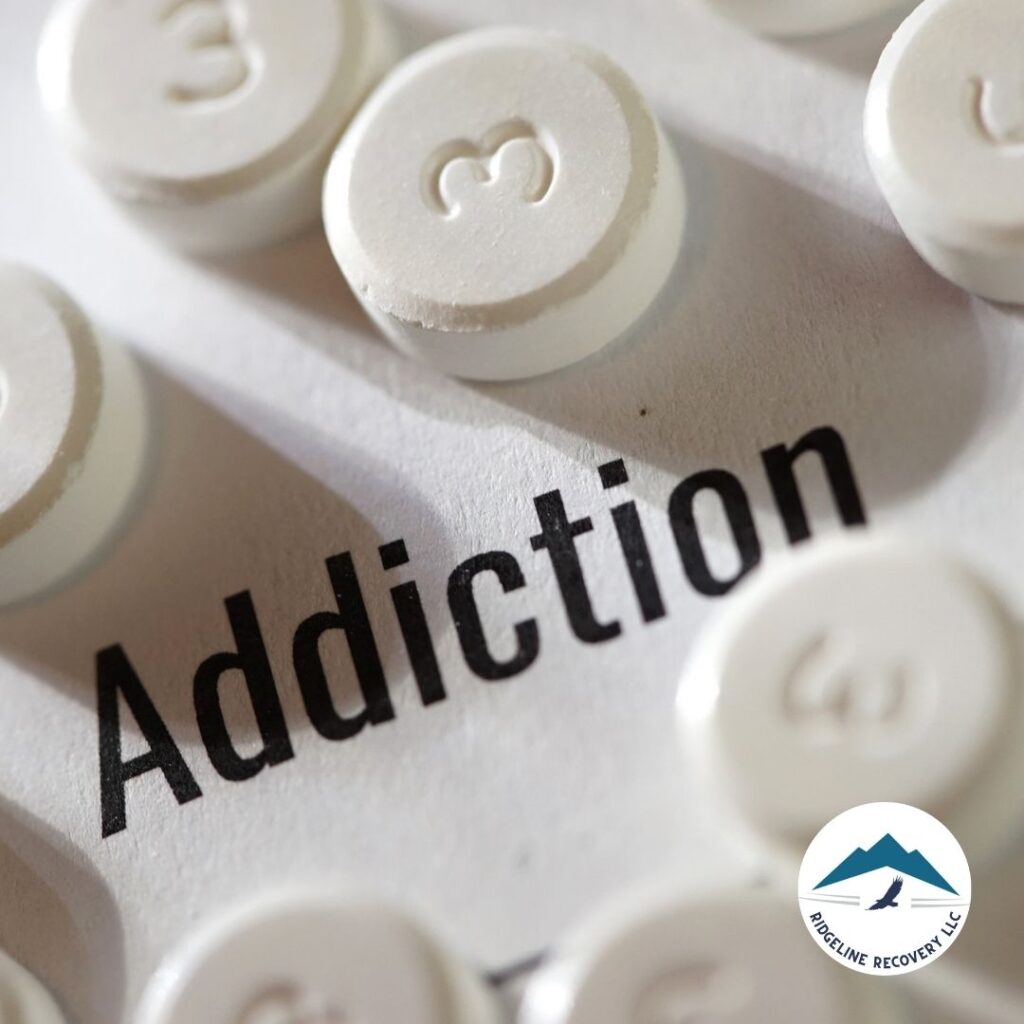Addiction can feel like a never-ending cycle.
It’s relentless, it’s exhausting, and it’s full of questions like, “How do I get help that works?” or “Is there an addiction therapy near me that actually gets it?”
Let’s get real: not all addiction therapy services are created equal.
You need therapy that actually serves you—designed to tackle the addiction while equipping you with the tools to keep pushing forward every day.
This guide? It’s everything you need to know about finding addiction therapy services in Ohio that get results.
Whether you’re looking for mental health services near me or an addiction recovery center Columbus people swear by, this is for you.
Why Is Addiction Therapy Essential?
Addiction rewires your brain and affects every aspect of your life—your health, relationships, career, and everything in between.
So why go at it alone? Good therapy targets the root of the problem, not just the symptoms.
And Ohio has a variety of addiction treatment Columbus centers, ready to support you in rebuilding your life.
What Makes Effective Addiction Therapy?
When it comes to addiction therapy services, the goal is long-term recovery.
That means more than just detoxing. It’s about making sure you have the skills, support, and structure to stay sober and thrive.
Key components of solid addiction therapy:
- Customized care: The best addiction recovery plans are built around your specific needs and situation. A one-size-fits-all approach? It doesn’t cut it.
- Qualified therapists and staff: You need more than “just” a therapist; you need professionals who understand addiction inside and out.
- Holistic support: Look for mental health therapists near me that also offer holistic support—like fitness programs, nutrition coaching, and family therapy.
If you’re Googling addiction recovery near me, pay attention to the treatment offerings that set a center apart.
Types of Addiction Therapy Services You Need to Know About
Ohio has a wide range of addiction therapy services covering everything from outpatient support to inpatient facilities.
Outpatient Addiction Therapy Services
If you’ve got responsibilities—work, family, etc.—that don’t allow for inpatient care, outpatient services can be life-saving.
Outpatient addiction treatment Columbus Ohio lets you keep up with life while attending regular therapy sessions.
Pros of Outpatient Services:
- Flexibility to keep working or taking care of family responsibilities
- Access to continuous support while maintaining daily routines
- More affordable than inpatient care
Intensive Outpatient Programs (IOP)
IOP is a step up from basic outpatient therapy.
It’s more intensive, often involving several hours of therapy multiple times a week, but you still get to sleep in your own bed.
What makes IOP valuable?
- It’s highly structured but doesn’t require full-time residence.
- You get access to intensive therapy sessions while still balancing life outside of treatment.
Inpatient and Residential Rehab Programs
Inpatient rehab? This is for those ready to dive in headfirst, taking 24/7 commitment to recovery.
It means living at the facility and participating in daily therapy, skill-building, and support activities.
Benefits of inpatient care:
- You’re fully immersed, so there’s no room for distractions.
- It provides a highly supportive environment where everything is about your recovery.
- It’s a great option for people dealing with severe addiction or mental health challenges.
In Columbus, you can find both inpatient and intensive inpatient drug treatment centers near me offering specialized programs.
Vivitrol Clinics and Medication-Assisted Treatment (MAT)
Medication-Assisted Treatment (MAT) is a proven approach that combines medication with therapy for better outcomes.
For some, Vivitrol clinics near me are a game-changer, especially if opioid addiction is part of the equation.
What is Vivitrol?
Vivitrol blocks the effects of opioids and alcohol, taking the “reward” out of substance use.
It’s one injection, once a month, and can reduce cravings, making it easier to focus on therapy and rebuilding.
If you’re thinking about MAT, find a Vivitrol clinic with qualified medical professionals.
It’s about more than just the shot—it’s about support, monitoring, and personalized care.

Breaking Down Addiction Therapy by Approach
Addiction therapy services are as varied as the people they serve. Let’s look at some common approaches to see which ones might work best for you.
Cognitive Behavioral Therapy (CBT)
CBT is the gold standard for many therapists.
It digs into the patterns and thoughts that trigger addictive behaviors, then rewires those patterns for healthier responses.
Dialectical Behavior Therapy (DBT)
DBT helps with managing emotions, which is crucial in addiction recovery.
It’s great for people who struggle with high emotional sensitivity or are dealing with a dual diagnosis, like addiction paired with depression or anxiety.
What If Mental Health Is Part of the Equation?
Struggling with addiction often means struggling with mental health, too.
Whether it’s anxiety, depression, or PTSD, tackling both is critical for lasting recovery.
Dual Diagnosis Treatment
If you’re searching mental health therapist near me, make sure they offer dual diagnosis support.
Mental health services near me need to address both addiction and mental health—one without the other doesn’t work.
Why Mental Health Matters in Addiction Therapy
Unresolved mental health issues can sabotage recovery.
Therapists at mental health clinics near me who understand addiction can help you manage both, making it easier to stay sober.
Understanding the Role of Family in Addiction Therapy Services
In addiction therapy, family often plays a key role.
Family members and close friends are part of the journey and, when included in therapy, they can significantly boost the recovery process.
Family-based addiction therapy services are about addressing the impact of addiction on relationships and helping everyone involved heal.
Addiction doesn’t just affect the individual; it creates cycles of mistrust, hurt, and frustration in the family unit.
What family-focused addiction therapy services include:
- Family therapy sessions: Helps family members understand addiction, rebuild trust, and learn how to support their loved one in recovery.
- Educational workshops: Family members learn about the science of addiction, mental health impacts, and how to handle relapse situations.
- Support groups for families: Sometimes, family members need their own support network to share their struggles and triumphs, which reduces feelings of isolation and burnout.
Including family in addiction recovery Columbus programs can strengthen relationships and create a support system that keeps you accountable.
Building a Long-Term Recovery Plan: Life After Addiction Therapy Services
Recovery isn’t a one-time event.
It’s a journey that requires ongoing commitment.
After completing addiction therapy services, the focus shifts to long-term success, involving continuous support and goal setting.
Sober Living and Transitional Housing Options
After treatment, it’s often helpful to enter a sober living facility or transitional home.
These places offer a safe environment where individuals can gradually adjust to life without substances.
Benefits of sober living:
- Structured environment to support sobriety
- Accountability with house rules and routines
- Access to community resources like job assistance and peer support
Sober living is especially helpful if your home environment might still be high-risk for relapse.
Why Mental Health Therapists Are Essential in Addiction Therapy Services
Addiction and mental health often go hand-in-hand.
It’s common for individuals to experience both, creating a need for comprehensive support through mental health therapist near me searches or nearby addiction centers.
A licensed mental health therapist works alongside addiction specialists to address underlying conditions, helping to prevent relapse by treating the root causes of addictive behavior.
Finding the Right Mental Health Clinic for Your Recovery
Whether you’re dealing with anxiety, depression, PTSD, or other mental health conditions, finding the right clinic is essential.
When looking for mental health clinics near me, make sure they offer dual-diagnosis treatment, which addresses both addiction and mental health in a coordinated approach.
Specialized Therapy Options in Addiction Treatment Columbus
In Columbus, Ohio, there’s no shortage of unique approaches to addiction recovery.
Many addiction therapy services go beyond traditional methods, incorporating various therapies that enhance recovery.
Adventure Therapy
Adventure therapy, for example, introduces physical challenges as part of the therapeutic process, promoting self-confidence and team-building skills.
This type of therapy is particularly helpful for those who feel “stuck” or want a fresh approach to healing.
Holistic Therapy Options
Types of holistic therapy that you may find valuable:
- Yoga and meditation: Reduces stress and provides coping skills.
- Nutritional therapy: Nutrition impacts brain chemistry, and a proper diet can support mood stability.
- Art and music therapy: Creative outlets for emotional expression.
Holistic therapy can be transformative, offering new perspectives and practical tools that complement traditional addiction therapy services.
Relapse Prevention Techniques: Staying on Track After Treatment
Preventing relapse is a key focus in effective addiction therapy services.
The road to sobriety is a long one, and it’s essential to be equipped with skills that keep you on track.
Top Relapse Prevention Techniques
- Trigger Identification: Understanding your personal triggers—people, places, and situations that make you want to use—is foundational. Addiction therapy helps you identify and manage these effectively.
- Mindfulness Practices: Mindfulness training can keep you grounded, especially in stressful situations. Techniques like deep breathing and body scans are great tools for staying present.
- Building a Support Network: Staying connected to support networks, including sober friends, family, or support groups, increases accountability.
Addiction treatment rehab centers in Ohio often integrate these techniques into their programs, so you’re ready for real-world challenges.
Medication-Assisted Treatment (MAT) as Part of Addiction Therapy Services
Medication can play a pivotal role in recovery, especially for those dealing with opioid or alcohol dependency.
Addiction therapy services often include medication-assisted treatment (MAT) as a comprehensive tool.
Common medications used in MAT include:
- Vivitrol: Blocks the rewarding effects of opioids and alcohol.
- Buprenorphine: Reduces cravings and withdrawal symptoms, helpful for opioid addiction.
- Methadone: Manages withdrawal symptoms and helps prevent relapse in opioid recovery.
Finding vivitrol clinics near me or buprenorphine providers is often a part of the treatment journey for those looking to reduce cravings while focusing on therapy.
Choosing the Best Addiction Therapy Services in Ohio
Choosing the right addiction therapy services can be a game-changer.
Here’s how to choose a center that fits your needs and recovery goals:
Key Factors to Consider
- Accreditation and licensing: Look for accredited addiction rehab facility centers with licensed staff.
- Range of therapy options: Ensure that both evidence-based and alternative therapies are available, including CBT, DBT, and holistic therapies.
- Dual-diagnosis support: If mental health is part of the picture, make sure dual-diagnosis treatment is offered.
By prioritizing these factors, you’ll increase your chances of finding the best addiction therapy services for your journey.
The Role of Personal Responsibility in Addiction Therapy
Accountability is a huge part of recovery.
Even the best addiction therapy services can only go so far if you’re not ready to take responsibility.
Ways to Build Accountability
- Tracking your progress: Journaling or using apps to track milestones can help you stay focused.
- Setting achievable goals: Start with small, realistic goals to build momentum.
- Connecting with accountability partners: Whether it’s a therapist, sponsor, or friend, having someone to check in with can keep you on track.
Exploring Therapy Alternatives: Beyond the Basics
If traditional addiction therapy services don’t feel like the right fit, Ohio offers alternatives:
Faith-Based Therapy
Faith-based programs integrate spirituality, allowing individuals to draw strength from their beliefs.
For those seeking Christian addiction therapy services, it can be an empowering option.
Community-Driven Support Networks
Community support can make all the difference.
Many communities have grassroots organizations that run sober meetups, fitness programs, and art therapy groups designed to support people in recovery.
Advanced Strategies in Addiction Therapy Services: A Comprehensive Guide to Building a Lasting Recovery
The journey to recovery isn’t just about detox or abstinence.
Effective Addiction Therapy Services in Ohio, especially at Ridgeline Recovery, focus on a holistic and customized approach.
This means addressing the root causes of addiction, incorporating mental health support, and building long-term resilience.
Let’s dive deeper into the advanced strategies and types of therapy that can play a transformative role in long-term recovery.
Breaking Free from Dependency: Deep Dive into Therapy Techniques
In the world of addiction therapy, no two cases are exactly alike.
That’s why advanced Addiction Therapy Services offer a range of techniques that help you address your specific challenges.
Cognitive Behavioral Therapy (CBT): Changing Patterns for Good
CBT is a cornerstone in addiction therapy services, renowned for its effectiveness in helping individuals break harmful thought patterns.
How CBT works in addiction therapy:
- Identifying triggers: CBT helps you recognize specific situations, thoughts, or feelings that drive substance use.
- Developing coping skills: Instead of turning to substances, you learn positive ways to cope with stress, anxiety, or depression.
- Building resilience: CBT fosters a sense of control over your thoughts, helping you to manage cravings and triggers.
Addressing Trauma in Addiction Therapy Services
Trauma is often at the heart of substance abuse.
For many, addiction starts as a coping mechanism for unprocessed trauma, making it critical to address these underlying issues through targeted addiction therapy services.
Eye Movement Desensitization and Reprocessing (EMDR) Therapy
EMDR is a type of therapy often used in trauma recovery and has proven effective in addiction therapy services as well.
Through a series of guided eye movements, EMDR helps reduce the emotional charge attached to traumatic memories.
Benefits of EMDR for addiction recovery:
- Alleviates anxiety associated with traumatic memories
- Reduces the urge to use substances as a coping mechanism
- Provides a pathway to process and heal from past trauma
Integrating Holistic Therapies in Addiction Therapy Services

Recovery isn’t just about the mind—it’s about the whole person.
That’s where holistic therapies come into play, offering a well-rounded approach that supports both mental and physical healing.
Art Therapy
The Art therapy is a valuable tool in addiction therapy services that allows individuals to express emotions and experiences they may struggle to articulate verbally.
Art therapy offers a creative outlet for processing pain, fear, and hope.
How art therapy supports addiction recovery:
- Fosters self-awareness by allowing individuals to express emotions creatively
- Provides a constructive outlet for emotions
- Builds a sense of accomplishment and personal growth
Yoga and Meditation
The benefits of yoga and meditation extend beyond relaxation.
For many in recovery, these practices become essential components of their sobriety toolkit.
Ways yoga and meditation help in recovery:
- Stress relief: Lowering stress through mindfulness reduces the likelihood of relapse.
- Increased self-awareness: Helps you connect with your body and emotions, making it easier to manage cravings.
- Improved mental health: Regular practice can reduce symptoms of anxiety and depression.
Mental Health Support in Addiction Therapy Services
Addiction and mental health challenges often go hand in hand, so comprehensive addiction therapy services should include mental health support.
Dual Diagnosis Treatment: Addressing Co-Occurring Disorders
Dual diagnosis treatment addresses both substance use disorder and mental health disorders, such as depression, PTSD, or anxiety.
This integrated approach is essential for a sustained recovery.
Medication and Psychiatric Support
Medication can help manage symptoms that fuel addiction, like anxiety or depression.
While medication isn’t a standalone solution, it can be an important part of a holistic approach, especially in centers like Vivitrol clinics near me, which focus on managing cravings and withdrawal symptoms.
Addiction Therapy Services and Long-Term Recovery Plans
While rehab is often the first step, building a long-term recovery plan is what sustains sobriety.
After completing formal addiction therapy services, ongoing support and structure help you avoid relapse and stay on track.
Sober Living Homes: A Transition into Independence
For many, moving directly from a treatment center back into everyday life is too abrupt.
Sober living homes offer a middle ground where you can gradually adjust to a substance-free life with support.
What sober living offers:
- A structured, substance-free environment
- Peer support and accountability
- Continued access to therapy and support groups
Addiction Therapy Services and Community Involvement
Recovery is often more successful when you’re part of a supportive community.
Many addiction therapy services encourage involvement in local support groups, community centers, and wellness programs.
Building Connections Through Community Programs
In Ohio, programs that connect individuals with sober activities—such as sports leagues, art classes, or book clubs—provide more than just a hobby; they create a sense of belonging and purpose.
Benefits of community programs in recovery:
- Reinforces healthy social interactions and friendships
- Provides structure and reduces feelings of isolation
- Creates opportunities for personal growth and discovery
Adventure Therapy: Pushing Boundaries in Addiction Recovery
For those who want a nontraditional approach, adventure therapy is a popular choice in modern addiction therapy services.
It combines physical challenges with therapeutic support, pushing individuals out of their comfort zones to foster resilience and self-confidence.
Activities often involved in adventure therapy:
- Hiking and rock climbing
- Team-building challenges
- Wilderness expeditions
Adventure therapy offers physical and mental challenges, encouraging personal growth while building trust with peers and therapists alike.
Frequently Asked Questions About Addiction Therapy Services
How long do addiction therapy services take?
It depends on the level of care.
Outpatient therapy could last several months, while inpatient programs range from 30 days to 90 days, sometimes longer.
Can I work while attending addiction therapy services?
Absolutely. Many addiction treatment near me programs are designed to fit around work and life schedules.
How can I tell if addiction therapy services are high-quality?
Look for personalized treatment plans, qualified staff, and a supportive environment.
Check reviews and, if possible, visit the facility.
What is the primary goal of addiction therapy services?
The goal of addiction therapy services is to equip you with the skills and support needed for a lasting recovery.
Therapy focuses on identifying triggers, building healthy coping mechanisms, and addressing any co-occurring mental health issues.
How long does addiction therapy last?
The length of therapy varies by individual needs, but addiction therapy can range from several weeks in intensive programs to a year or more in aftercare.
Long-term success often involves continued participation in community support or ongoing therapy.
Can I bring family into my addiction therapy services?
Yes, family involvement is highly encouraged.
Family therapy can help repair relationships, educate loved ones about addiction, and provide a supportive network during recovery.
What is dual diagnosis treatment?
Dual diagnosis treatment addresses both addiction and mental health disorders simultaneously.
This integrated approach is effective in cases where underlying mental health issues, such as anxiety or PTSD, contribute to substance use.
How do I know if addiction therapy services are right for me?
If you’re struggling with substance use and want structured support, addiction therapy services offer a range of tools, from therapy to community programs, to support your journey.
Speaking with a therapist or treatment center can help you determine the best approach for your needs.
What should I look for in addiction therapy services?
Look for personalized treatment, experienced staff, and an environment focused on long-term success.
It’s about finding an approach that works for you, whether that’s outpatient addiction treatment or intensive inpatient drug treatment centers near me.
Are mental health services included in addiction therapy services?
Many top-tier addiction therapy services integrate mental health care, especially if you’re dealing with dual diagnoses.
Having access to mental health clinics near me that provide comprehensive support can make a big difference in recovery.
Can I bring my family into therapy?
Yes, many centers offer family therapy as part of their addiction therapy services.
Family involvement can strengthen the support system around you, creating a more stable recovery environment.
How to Start Your Recovery Journey with Ridgeline Recovery
Starting recovery might feel like a huge step, but you don’t have to do it alone.
With addiction therapy services tailored to your needs, you can build a foundation that supports long-term sobriety.
Ridgeline Recovery LLC offers a wide range of treatment options in Ohio, from outpatient addiction therapy to specialized support for dual-diagnosis cases.
Call us at 614-618-5000 or visit www.ridgelinerecovery.com to learn more about your options for a fresh start.
Ready to reclaim your life? The journey begins now.
Call Us Now!
If you or a loved one is struggling with heroin or alcohol dependency, reach out to Ridgeline Recovery Center in Columbus, Ohio, today. At Ridgeline Recovery, we offer a path to hope and healing. Our comprehensive Addiction Recovery services include Addiction Therapy, Addiction Treatment, Vivitrol Clinic and specialized Mental Health Services designed to support your journey to recovery.
We provide Aftercare Programs and Peer Support to ensure you have ongoing assistance after treatment. Our dedicated team offers Case Management and Child Services for those needing extra support. For individuals who prefer a faith-based approach, we offer Faith-Based Recovery options.
Our programs feature Group and Individual Counseling, along with Medication-Assisted Treatment (MAT) to address your unique needs. We also have an Intensive Outpatient Program (IOP) and a Partial Hospitalization Program (PHP) for more structured care.
Our team includes Registered Nurse Services, Psychiatric Services, and Therapeutic Behavioral Services (TBS) to provide comprehensive support throughout your recovery process. We work with various Insurance Coverage plans to help you access the care you need.
Don’t wait—contact us now to start your journey toward a brighter future with Ridgeline Recovery.
For more stories and information Contact Us, visit our Blog page and Stories & Highlights.







